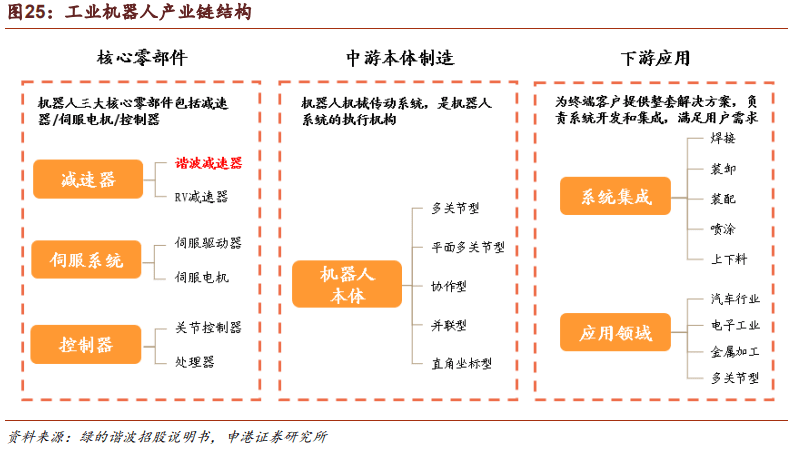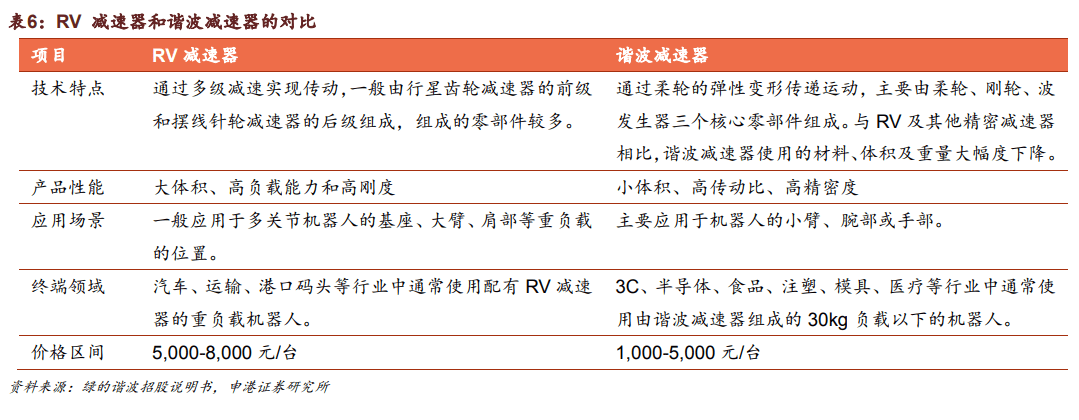Home >Technology peripherals >AI >Institutional Research and Selection | The cost ratio of robots to labor continues to decrease! Leading stocks in the precision reducer segment are expected to benefit
Institutional Research and Selection | The cost ratio of robots to labor continues to decrease! Leading stocks in the precision reducer segment are expected to benefit
- WBOYWBOYWBOYWBOYWBOYWBOYWBOYWBOYWBOYWBOYWBOYWBOYWBforward
- 2023-08-21 11:53:101549browse
Aging and improving education levels have led to a shortage of factory workers. The cost ratio of robots to labor continues to decrease, and the cost-effectiveness of replacing humans with machines is highlighted. The scale of the precision reducer industry will continue to expand in the future. The agency recommends looking for high-quality investment targets around environmental sensing modules and precision reducer tracks.
Aging combined with improving education levels has led to a shortage of factory workers
According to data, the proportion of my country's labor force aged 15-59 continues to decline, and the aging problem is becoming increasingly serious. At the same time, the proportion of the employed population with a bachelor's degree continues to increase, which has led to factories facing greater labor pressure and rising labor costs. (From 2011 to 2021, the per capita wage in urban non-private manufacturing units increased from 42,500 yuan to 110,200 yuan, with an average annual compound growth rate of 10%). Therefore, the use of robots to replace labor for production in the future has become an irreversible historical trend
The labor cost ratio of robots continues to decrease, and the cost ratio of machine replacement is highlighted
According to data from the China Robot Industry Alliance and the National Bureau of Statistics, the average sales price of industrial robots dropped from US$43,500 per unit in 2015 to US$37,100 per unit in 2020. As the price of industrial robots falls and wages of manufacturing workers rise, the robot-to-labor cost ratio decreases from 4.68 in 2015 to 2.51 in 2020. Taking into account the improvement in efficiency and safety brought about by industrial robots replacing human labor, machine substitution has become more cost-effective

The scale of the precision reducer industry will continue to expand in the future
Reducer is one of the important basic components of various traditional industrial systems. According to different application fields, it can be divided into general reducer and special reducer, of which the general field accounts for nearly 50%. According to previous industry research data, the market size of my country's reducer industry will increase from 125.8 billion yuan to 160.5 billion yuan in 2021-2026, with a CAGR of 4.99%. The competition landscape of my country's reducer industry is relatively fragmented. In 2021, the market share of foreign-funded enterprises such as SEW and FLENDER will be Accounting for about 20%, leading domestic companies that dominate the high-end market account for a total of 20%, mainly concentrated in traditional industries, and gradually penetrating into the high-end; the remaining 60% are numerous domestic small, medium and micro enterprises. In recent years, the products of local enterprises in my country have continued to move towards high-end and electromechanical integration, and the gap with international brands has gradually narrowed. In addition, policies have been introduced to support industrial development. The localization rate of reducers will accelerate, and leading enterprises are facing good development opportunities. The precision reducer has the characteristics of short transmission chain, small size, high power, light weight and easy control. It is one of the three core components of the robot. With the realization of large-scale production by enterprises in the industry and the rapid development of downstream collaborative robots, industrial robots and other industries, the scale of the precision reducer industry will continue to expand in the future.

Harmonic reducer is a key core component in the field of robot production
Reducers play an indispensable role in high-end manufacturing. As an intermediate mechanism connecting the power source and the actuator, the reducer has the function of matching rotation speed and transmitting torque. According to different control accuracy, reducers can be divided into general transmission reducers and precision reducers. Precision reducers have the characteristics of small return clearance, high precision and long service life. They are more reliable and stable and are widely used in high-end fields such as robots and CNC machine tools. Harmonic reducer and RV reducer are common reducer types
Harmonic reducer is more suitable for small joint applications than RV reducer
Compared with RV reducers, harmonic reducers have the characteristics of small size, high transmission ratio, and high precision. They are suitable for the forearms, wrists or hands of robots. In addition, the material, volume and weight of harmonic reducers are also greatly reduced, making them cheaper. According to Green's harmonic prospectus, the price of harmonic reducers is 1,000-5,000 yuan/unit, while the price of RV reducers is 5,000-8,000 yuan/unit
The agency recommends focusing on the harmonic reducer, RV reducer, the core components of the motion control system, and the lidar of the environment sensing module, and looking for high-quality investment targets around subdivided tracks.
(Quoted from Zheshang Securities and Shengang Securities)
The above is the detailed content of Institutional Research and Selection | The cost ratio of robots to labor continues to decrease! Leading stocks in the precision reducer segment are expected to benefit. For more information, please follow other related articles on the PHP Chinese website!
Related articles
See more- Technology trends to watch in 2023
- How Artificial Intelligence is Bringing New Everyday Work to Data Center Teams
- Can artificial intelligence or automation solve the problem of low energy efficiency in buildings?
- OpenAI co-founder interviewed by Huang Renxun: GPT-4's reasoning capabilities have not yet reached expectations
- Microsoft's Bing surpasses Google in search traffic thanks to OpenAI technology

